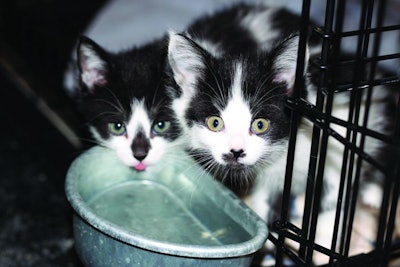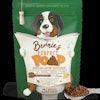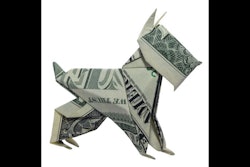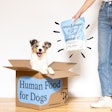
State legislators are hardworking and take on important issues. Most are paid very little for their service — all the way down to the US$100 annually that New Hampshire’s lawmakers make for months of work, entailing long hours and time away from home. But sometimes, it would be nice if state legislators didn’t work quite so hard. There is an ongoing uptick in state bills that propose the use of funds collected from pet food manufacturers to support animal welfare initiatives.
While spay and neuter programs are effective in reducing the euthanasia of pets without homes, is it appropriate to fund these laudable causes through taxes on pet food manufacturers who already voluntarily contribute to many animal shelters and animal welfare programs?
Current state taxes on pet food manufacturers
Maine was the first legislature to apply a surcharge to pet food label registrations as a way to fund the state’s spay and neuter program for pets owned by low-income citizens. The state levies an additional US$20 surcharge to pet food on top of an US$80 animal food product registration fee. The surcharge supports the Help Fix ME sterilization fund up to US$100,000 annually. In addition, money collected from the surcharge above US$100,000 and up to US$157,000 goes to the Maine Animal Welfare Fund.
Help Fix ME distributes vouchers to qualified individuals who can’t afford to spay their cats or large breed dogs. In addition to the US$100,000 raised from industry through the extra tax/fee, the program also accepts funds from a tax checkoff, license plate sales and donations, but these are only small contributions, and the bulk of funding is from pet food manufacturers through the US$20 surcharge.
Several states have followed Maine’s lead and now West Virginia, New Mexico and Maryland tax pet food manufacturers between US$20 and US$100 per product label to support low-cost spay and neuter clinics. All of these fees are in addition to the fees pet food manufacturers are charged to register their products in those states.
In New Mexico, the soon-to-be US$100 fee per pet food product label will pay to provide low-cost spay and neuter services for animals of income-qualified New Mexicans in areas most in need, and 4% will go to the state’s department of agriculture to fund pet food registration enforcement. Up to 5% of remaining fee revenues may be used by New Mexico’s Board of Veterinary Medicine for enforcement of the Animal Sheltering Act.
In West Virginia, the spay and neuter program is funded solely through a surcharge to registration fees paid by pet food manufacturers with a goal of decreasing the populations of stray and feral dogs and cats by increasing spay and neuter rates. Distribution of the funds considers the special needs of rural, low population counties and emphasizes support to these communities.
Funding for Maryland’s spay and neuter program is up for renewal in the legislature this year (2022) and efforts are underway to increase the US$100 per-product-label surcharge to expand the program to include more feral cats. That means more money must come from somewhere and pet food manufacturers are once again an easy target to line the state’s coffers. The American Feed Industry Association (AFIA) has succeeded in having an amendment added to the Maryland bill requesting the consideration of new funding sources for the spay and neuter program so that the pet food industry is not additionally burdened.
Original purpose of fees is being lost
Most of the fees collected through pet food surcharges have nothing to do with regulatory oversight of the industry. The growing incidence of state legislation requiring pet food manufacturers to pay for pet-related social welfare programs is unwarranted.
In addition to the US$20 pet food surcharge used for Help Fix ME, Maine uses US$40 of the US$80 per product label registration fee for the Animal Welfare Fund to staff animal welfare positions and for the care of seized animals awaiting court cases. None of the label registration fees collected in Maine are used for their intended purpose: the regulatory oversight of the animal food industry.
By contrast, Vermont charges US$105 per label registration, has no pet food surcharge and uses the product label registration money to pay staff to collect animal food samples, run laboratory analysis on the samples and publish a report of label violations — things that the registration fees were intended to cover.
States are taking advantage of income raised through established regulatory programs, and then using the money for other purposes. Increased taxes on pet food manufacturers reduces money available for research and development to bring new products to the marketplace to support the health and longevity of pets. You can only split the kibble into so many pieces!
Briefly: top 5 takeaways
- There is an increase in state bills that propose the use of funds collected from pet food manufacturers to support animal welfare initiatives.
- Maine was the first legislature to apply a surcharge to pet food label registrations as a way to fund the state’s spay and neuter program for pets owned by low-income citizens.
- Several states have followed Maine’s lead: West Virginia, New Mexico and Maryland now tax pet food manufacturers per product label to support low-cost spay and neuter clinics.
- Most of the fees collected through pet food surcharges have nothing to do with regulatory oversight of the industry.
- Increased taxes on pet food manufacturers reduces money available for research and development to bring new products to the marketplace.
More pet food industry insights
















